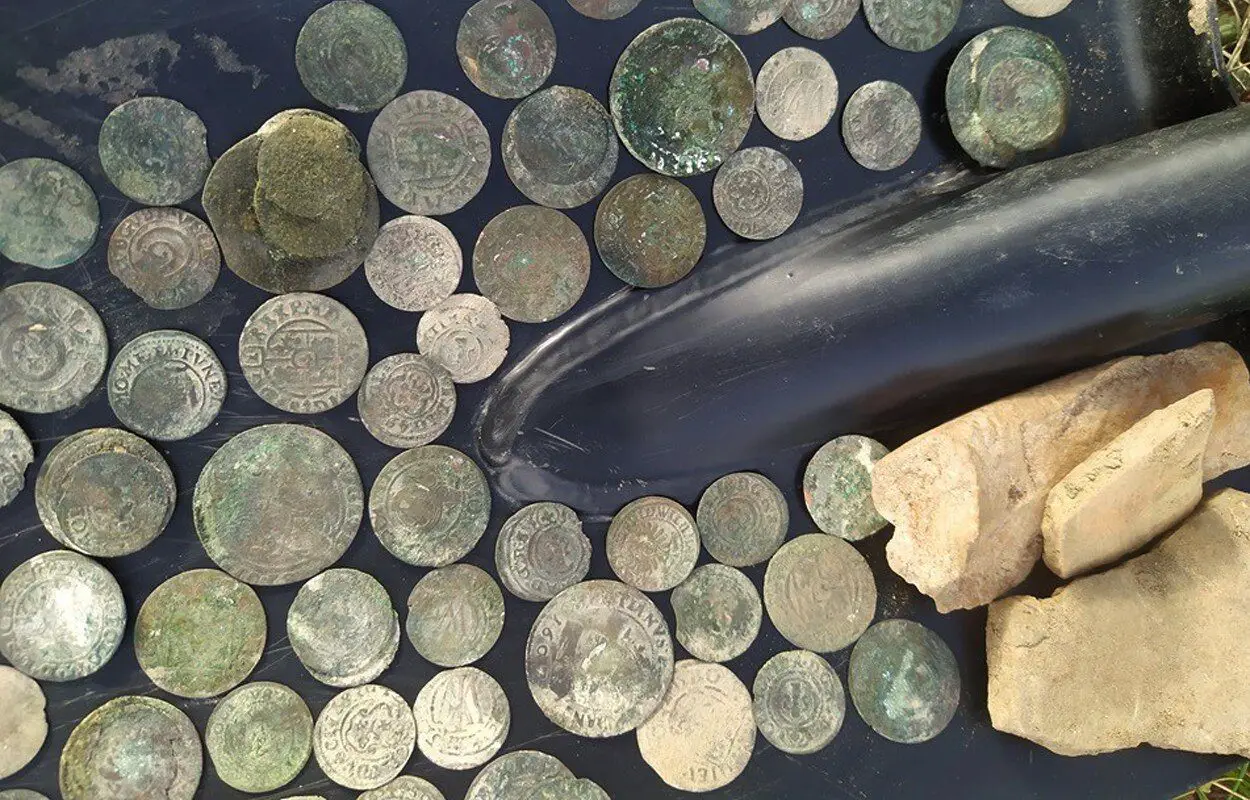Members of the “Jaćwież” Historical and Exploration Association have discovered over 500 coins dating from the 17th century at a construction site in Ełk, Poland.
The discovery was made by researchers who were using metal detectors to survey the removed soil during the resurfacing of a road.
They found a total of 507 silver coins that date from the first half of the 17th century and originate from various European countries. Local reports state that there are Polish, Swedish, Dutch, Scottish and Danish coins of various denominations.
Some of the identified coins depict Fryderyk Wilhelm, Charles X Gustav, Jan Kazimierz, Leopold II, Georg Wilhelm, Christian IV (Denmark), Charles II (Scotland) and Sigismund III.
The coins were hidden sometime after 1652, as identified by the most recent date on one of the coins. The researchers suppose that the coins may have been buried by a local merchant or innkeeper, or possibly a soldier in a clay pot for safekeeping.
At the time, Ełk was located within the boundaries of the Duchy of Prussia and was located on a major trade route connecting Mazovia (a historical region in mid-north-eastern Poland) with Königsberg (the historic Prussian name for modern-day Kaliningrad, Russia).
The coins are to be presented to the Historical Museum in Ełk for conservation and further identification before being put on public display.
Header Image Credit : “Jaćwież” Historical and Exploration Association





